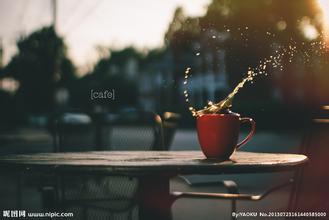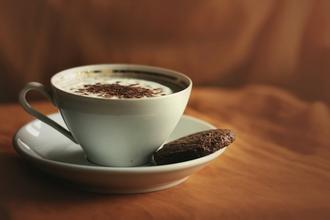Flavor description of Panamanian Cupid Coffee introduction to the taste of varieties in producing areas
Panamanian coffee is famous for the rosy summer of the Emerald Manor, which is also famous in the Boquete region of its Chiriqui province. Boquete is a town of Chiriqui in the province of Ricki, located near the border between Panama and Costa Rica, close to the famous Baru Baru volcano, scenic, fertile soil, climate and soil are very suitable for producing quality coffee Panama is a Central American country, bordered by Costa Rica to the west and Colombia to the east. Anyone who knows anything about individual coffee should know that Panamanian coffee is famous in the coffee world as the geisha Geisha (the name of Rosa) in the Emerald Manor. It can be said that it is a country that strives for excellence in coffee and is rich in high-quality coffee. There are many excellent estates in the Pokuit producing area, except the famous Emerald Manor, Alida Manor, Aqaba Manor and so on. All produce high-quality boutique coffee. This is not only due to the superior ecological conditions of the Pokuit region of Panama and the fertile volcanic ash soil of the Baru volcanic land. Another important factor is that the microclimate in the Poquet Heights of Panama is a unique and important resource for boutique coffee in the Pokuit region. This is the Panamanian environment from east to west, which allows the cold air to converge over 6500 feet through the Central Mountains, thus creating a variety of microclimates in the Pokuit region, making its temperature and rainfall very suitable for plant growth. so the coffee trees grown here are in good condition.
Then in the land of Pokuit, there is a bean with a high performance-to-price ratio. And it has a very beautiful name-Flower Butterfly. She has 40% high-quality Rosa pedigree, which is composed of Rosa, Kaddura and Kaduai. It is planted in the Baru volcano region of Pokut and grows in the volcanic area at an altitude of 1600 meters. The treatment plant uses fine washing treatment. Panama's special local microclimate leads to abundant rainfall in this area, and a large temperature difference between day and night, coupled with the unique volcanic rock and soil of the volcanic area, as well as meticulous harvesting and fine treatment. What makes this coffee excellent in terms of thickness, acidity and flower aroma is that, on the basis of very excellent quality, the very people-friendly price makes this coffee bean cost-effective. What is special about this coffee bean is that it is made up of three varieties, of which 40% are rosy summer varieties, giving this coffee a distinct rosy summer flavor. According to the information obtained, due to the historical reasons of the manor, in order to pursue yield at that time, the early Rosa varieties were mixed with the coffee trees of Kaddura and Kaduai, and in order to facilitate picking, coffee farmers did not reclassify them, but directly mixed the three varieties. After that, as Rosa rose to fame and the price was soaring, the processing plant began to carry out fine washing treatment for such a coffee bean. Now there are many ways of washing, but generally speaking, the floating beans are removed after the coffee fruit is picked, then the pulp is removed, and the coffee beans are soaked in a fermentation tank, and the enzymes in the water soften the mucus attached to the peel of the coffee beans. Natural yeast breaks down sugars in mucus, a process called fermentation. After the fermentation is completed, move the coffee beans to the sun field to dry. In the process of drying, you need to constantly turn the coffee beans to ensure the uniformity of the drying. Finally, the shell is kept in the warehouse, and some raw bean merchants place an order before shelling and bagging. The processed coffee tastes clean, emphasizing bright and lively acidity, as well as clear fruit flavor and floral aroma.

Important Notice :
前街咖啡 FrontStreet Coffee has moved to new addredd:
FrontStreet Coffee Address: 315,Donghua East Road,GuangZhou
Tel:020 38364473
- Prev

Dominica Coffee Grinding method Taste Variety characteristics of manors in producing areas
The Dominican Republic has also experienced a history of unrest and poverty, and now the country has implemented democratic elections and entered a period of stable development, but it has not yet formally established diplomatic relations with China, but has maintained so-called diplomatic relations with Taiwan. It seems that this has nothing to do with coffee, but in fact, it still has an impact. The exchanges between the two countries that have not established diplomatic relations are subject to many restrictions in all aspects, and of course they will.
- Next

Introduction to the method of describing the Flavor of El Salvador Himalayan Coffee Manor
Savanna climate. The plain area belongs to the tropical rain forest climate and the mountain area belongs to the subtropical forest climate. The average annual temperature is 25-28 ℃. The annual precipitation is more than 1800 mm in mountain areas and about 1000 mm in coastal areas. The rainy season is from May to October. Don't underestimate El Salvador's coffee production. In its heyday, it was the world's fourth largest coffee producer, but decades of civil war almost dragged down coffee
Related
- Detailed explanation of Jadeite planting Land in Panamanian Jadeite Manor introduction to the grading system of Jadeite competitive bidding, Red bid, Green bid and Rose Summer
- Story of Coffee planting in Brenka region of Costa Rica Stonehenge Manor anaerobic heavy honey treatment of flavor mouth
- What's on the barrel of Blue Mountain Coffee beans?
- Can American coffee also pull flowers? How to use hot American style to pull out a good-looking pattern?
- Can you make a cold extract with coffee beans? What is the right proportion for cold-extracted coffee formula?
- Indonesian PWN Gold Mandrine Coffee Origin Features Flavor How to Chong? Mandolin coffee is American.
- A brief introduction to the flavor characteristics of Brazilian yellow bourbon coffee beans
- What is the effect of different water quality on the flavor of cold-extracted coffee? What kind of water is best for brewing coffee?
- Why do you think of Rose Summer whenever you mention Panamanian coffee?
- Introduction to the characteristics of authentic blue mountain coffee bean producing areas? What is the CIB Coffee Authority in Jamaica?

